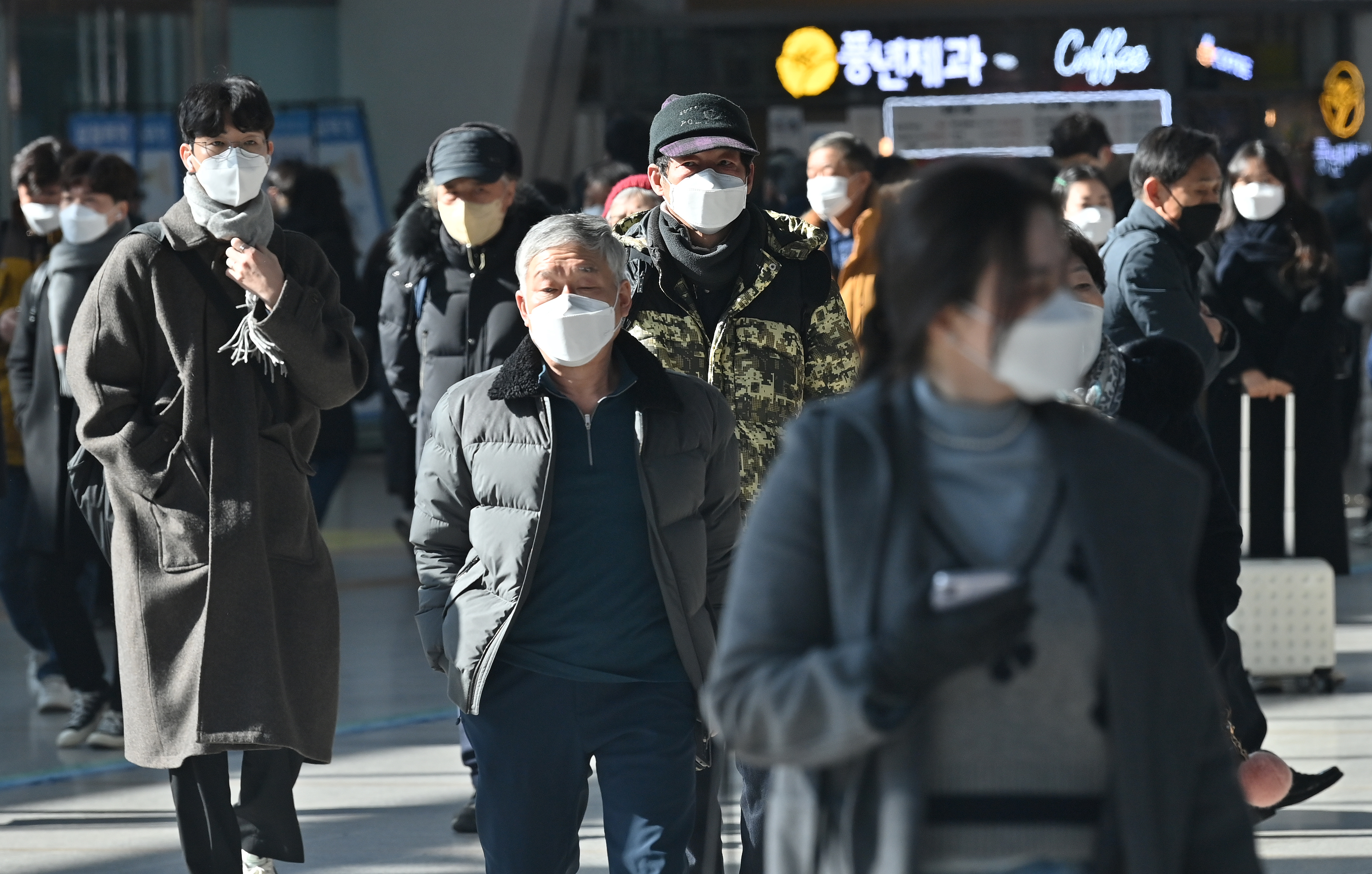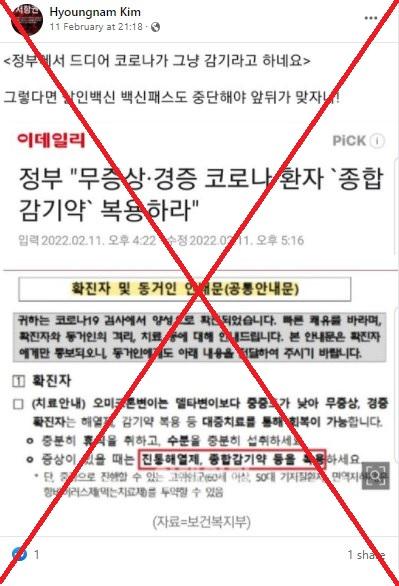
Posts misrepresent South Korean government's latest advice for treating Covid-19
- This article is more than three years old.
- Published on March 3, 2022 at 06:04
- 2 min read
- By Richard KANG, AFP South Korea
The claim was shared here on Facebook on February 11, 2022.
"The South Korean government has finally admitted that Covid-19 is the common cold. Now it's time to stop vaccines and a vaccine passport scheme!" reads the Korean-language claim.

At the start of the pandemic in 2020, South Korea was hit by one of the worst early outbreaks of the disease outside China but brought it under control with mass testing and aggressive contact tracing.
The strategy earned the country widespread praise, but Seoul decided to drop the system in February after the rapid spread of the Omicron variant, AFP reported.
The claim was shared alongside a screenshot of a news report from South Korean daily Edaily published on February 11, 2022.
The report's headline reads: "The government now advises asymptomatic Covid-19 patients or patients with mild symptoms to treat themselves with cold medicines".
It includes the latest guidelines on how to treat Covid-19 patients from the KDCA and South Korea's Ministry of Health and Welfare.
An identical claim was shared on Facebook here, here and here.
Comments suggest that some users were misled by the claim.
One user wrote: "The government has lied to us for two years! And people still listen to the government without questioning".
Another user said: "The government and its aides who have lied about Covid-19 to people should be punished!"
However, the posts have misrepresented the KDCA guidance, a spokesman for the government health agency told AFP.
Virus guidelines
Keyword searches on the South Korean portal website Naver found the guidelines published on February 14, 2022 by KDCA.
The guidelines advise asymptomatic Covid-19 patients or patients with mild symptoms to treat themselves with cold medicines.
"Omicron variant causes less severe symptoms than Delta variants. So, asymptomatic Covid-19 patients or patients with mild symptoms can treat themselves with cold medicines, fever remedies or pain killers," reads the guidelines in part.
There is no mention in the guidelines that the government "admitted Covid-19 is the common cold", as the misleading posts claim.
Misleading comparison
AFP has previously debunked the false claim that "Covid-19 is a common cold", and posts that made similar misleading comparisons.
Covid-19 is a disease caused by the SARS-CoV-2 virus, while the common cold is caused by different types of viruses -- including coronaviruses, RSV and parainfluenza and rhinoviruses.
Covid-19 symptoms generally appear two to 14 days after exposure to SARS-CoV-2, but symptoms of a common cold usually appear one to three days after exposure to a cold-causing virus, according to US academic medical centre Mayo Clinic.
"Unlike Covid-19, a cold is usually harmless. Most people recover from a common cold in three to 10 days, although some colds may last as long as two or three weeks," the clinic said on its website.
As of March 3, 2022, South Korea has recorded 8,394 deaths from Covid-19, according to KDCA data.
Copyright © AFP 2017-2026. Any commercial use of this content requires a subscription. Click here to find out more.
Is there content that you would like AFP to fact-check? Get in touch.
Contact us
